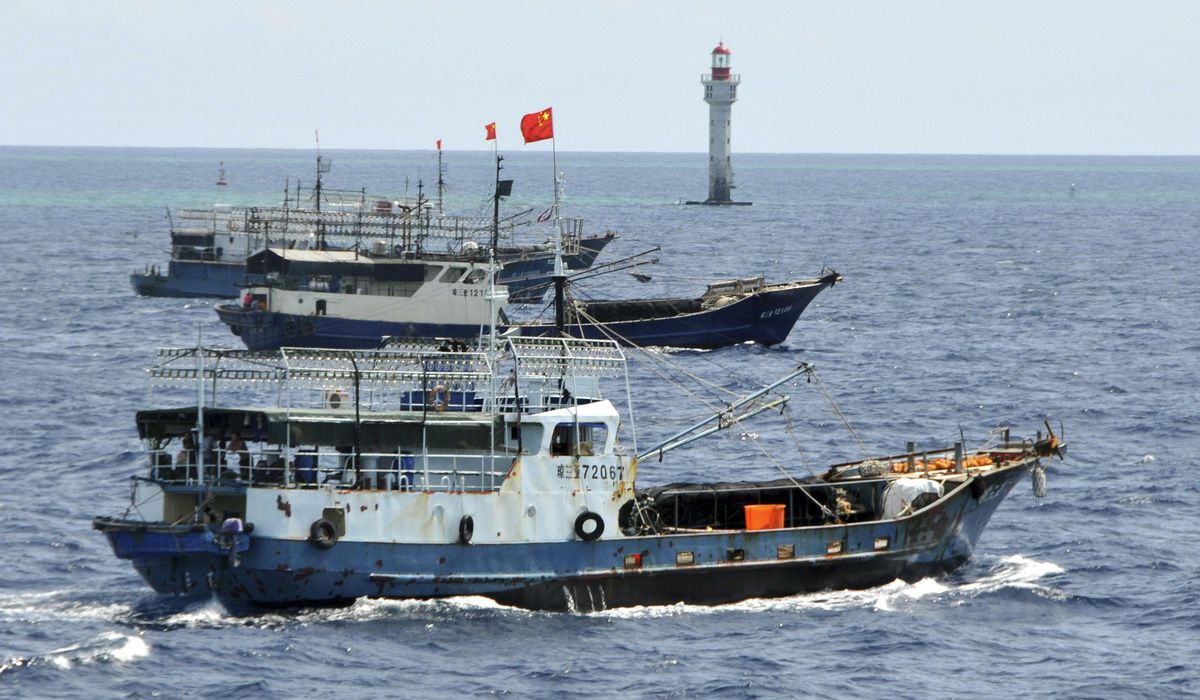


SEOUL, South Korea (AP) — A fleet of Chinese distant-water fishing vessels used North Korean crews between 2019 and 2024 in violation of U.N. bans, and many were apparently subjected to abuses including being trapped at sea for years, a report published Monday said.
The Environmental Justice Foundation, a London-based group specializing in environmental and human rights issues, said it identified the presence of North Koreans across 12 Chinese tuna long-liners operating in the southwest Indian Ocean. The report was mostly based on interviews with 19 Indonesians and Filipinos who worked alongside the North Koreans.
“The testimony received from Indonesian and Filipino crew members suggests that concerted efforts were made to hide the presence of North Koreans on these vessels, and that those North Koreans on board were forced to work for as many as 10 years at sea — in some instances without ever stepping foot on land,” the report said.
“This would constitute forced labor of a magnitude that surpasses much of that witnessed in a global fishing industry already replete with abuse,” it said.
EJF said that the North Koreans were passed from vessel to vessel, using a method called “trans-shipment” to prevent them from returning to land. It cited unidentified Asian crew members as saying that their North Korean shipmates were not allowed to use mobile phones and leave their vessels during port visits.
EJF said it wasn’t able to estimate the number of North Koreans aboard the Chinese vessels because they were all transferred to sister vessels.
The use of North Korean crew is a breach of a 2017 U.N. Security Council resolution that required member states not to issue work permits to North Koreans and repatriate all remaining North Korean workers from their territories by the end of 2019. The sanctions were adopted after North Korea tested a long-range missile in violation of other U.N. Security Council resolutions.
EJF said the use of North Korean crew also appears to have bypassed legal frameworks in the U.S. and the European Union designed to prevent goods produced by North Koreans from entering their supply chains.
Along with Russia, China is suspected of not fully enforcing U.N. sanctions on North Korea and has vetoed U.S.-led efforts to toughen U.N. sanctions on North Korea despite its banned weapons tests.
China’s Foreign Ministry did not comment immediately.
Before the 2019 U.N. deadline, tens of thousands of North Koreans were working abroad, mostly at factories and restaurants in China and logging camps and construction sites in Russia, to bring in much-needed foreign currency. EJF said it’s the first time that North Korean labor has been publicly documented on a distant-water fishing vessel.
North Korean workers abroad were in general under the constant surveillance of their country’s security agents, toiled more than 12 hours a day and took home only a fraction of their salaries, with the rest going to their government, according to defectors and experts.
Despite the U.N. ban, South Korean officials and experts believe that a large number of North Korean workers remain engaged in economic activities around the world and transmit money that is used in the North’s nuclear weapons programs.
